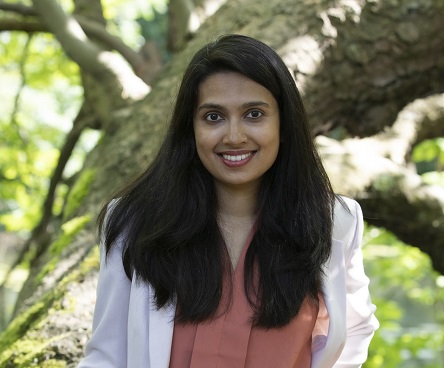Energy Seminar – Week 6: Bringing Breakthrough Technologies to Market: Solar Power and Feed-in Tariffs
Sugandha Srivastav
- Start Tuesday 14 Nov 2023 5:00pm
- Finish Tuesday 14 Nov 2023 6:30pm
- Venue Dyson Perrins Building
- Postcode OX1 3AN
- Download event slides - PDF (5.80 MB)

THIS IS AN IN PERSON AND ONLINE EVENT
Summary: Solving societal problems such as climate change requires commercializing new technologies. Yet, due to incomplete information, there are under-developed markets for finance and insurance for these new technologies. Temporary support to bring the first set of projects to market may be warranted to resolve this credit market failure. Sugandha investigates the impact of the UK’s feed-in tariff (FiT) which provides revenue certainty by offering a fixed price for power generated by solar farms over 25 years. Exploiting the presence of bunching at the policy’s eligibility threshold, Sugandha finds the FiT supported the first tranche of commercial solar investments in the country, contributing to at least 2.3 GW of additional capacity from 2010-2015 (equal to one-fifth of all solar in the UK today). Tradable certificates for clean energy that provided similar subsidies at the point of entry, but without the long-term guarantee over price, were not able to induce the same degree of market-creation, illustrating the value of risk reduction. A social cost of carbon equal to £100/tCO2 makes the FiT a net benefit.
Speaker: Sugandha is a British Academy Postdoctoral Fellow and Lecturer in Environmental Economics at the University of Oxford, and a Distinguished CESifo affiliate. Her primary research explores the drivers of clean technology innovation. Specifically: how early-stage clean technologies can be financed and commercialised. She also investigates how to re-design power markets for a net zero future.
To help operationalise climate policy, her secondary research explores the political economy of the energy transition, where her work looks at legacy laws that implicitly subsidise fossil fuels and the dynamics of lobbying. She holds research positions at the Smith School, Economics Department, Saïd Business School & Institute of New Economic Thinking at Oxford.

